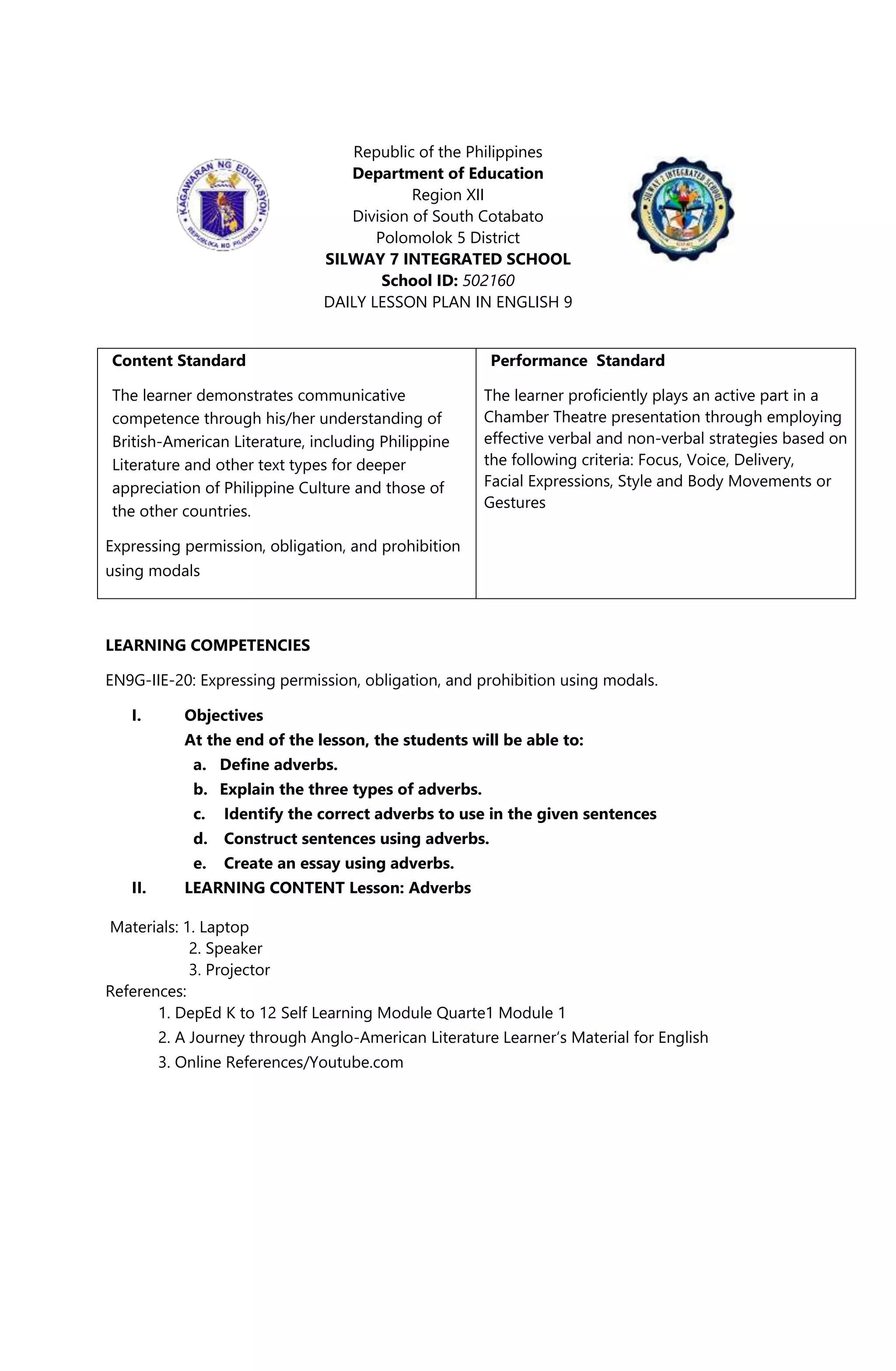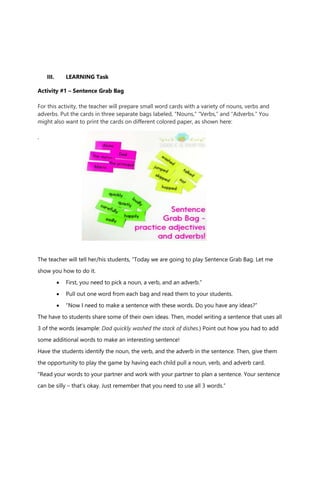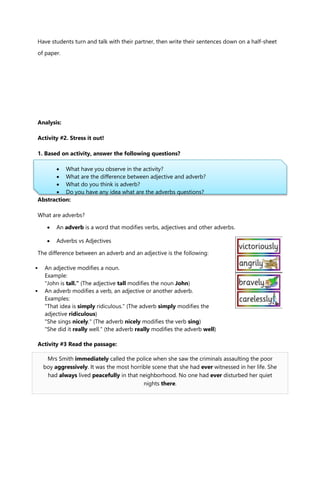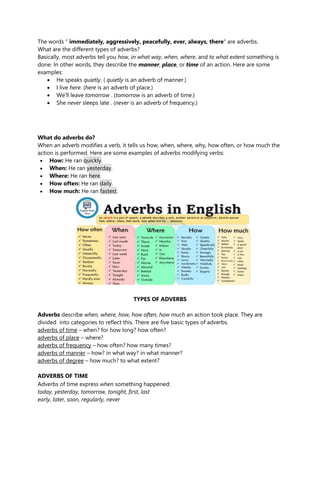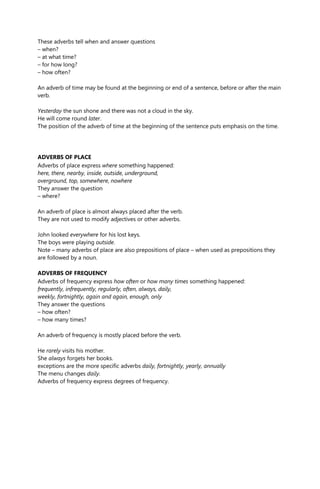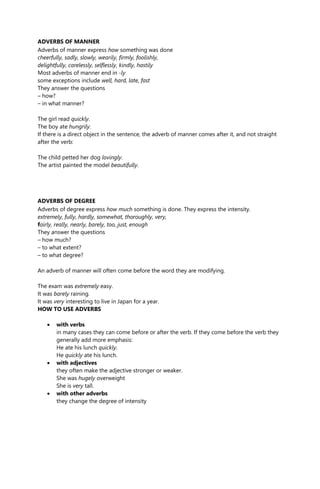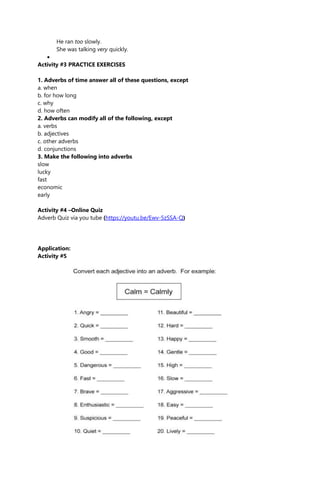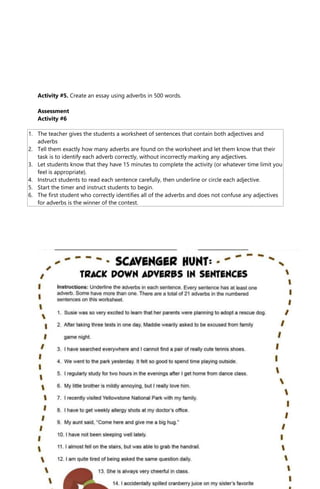This document contains a daily lesson plan for a class on adverbs. The objectives are to define adverbs, explain the three types, identify them in sentences, construct sentences using adverbs, and create an essay using adverbs. Several activities are outlined to meet these objectives, including a sentence grab bag game, analyzing examples, identifying adverb types, online quizzes, creating an essay, and an assessment worksheet. The lesson plan provides context, standards, materials, and reflections for evaluating student understanding of adverbs.
